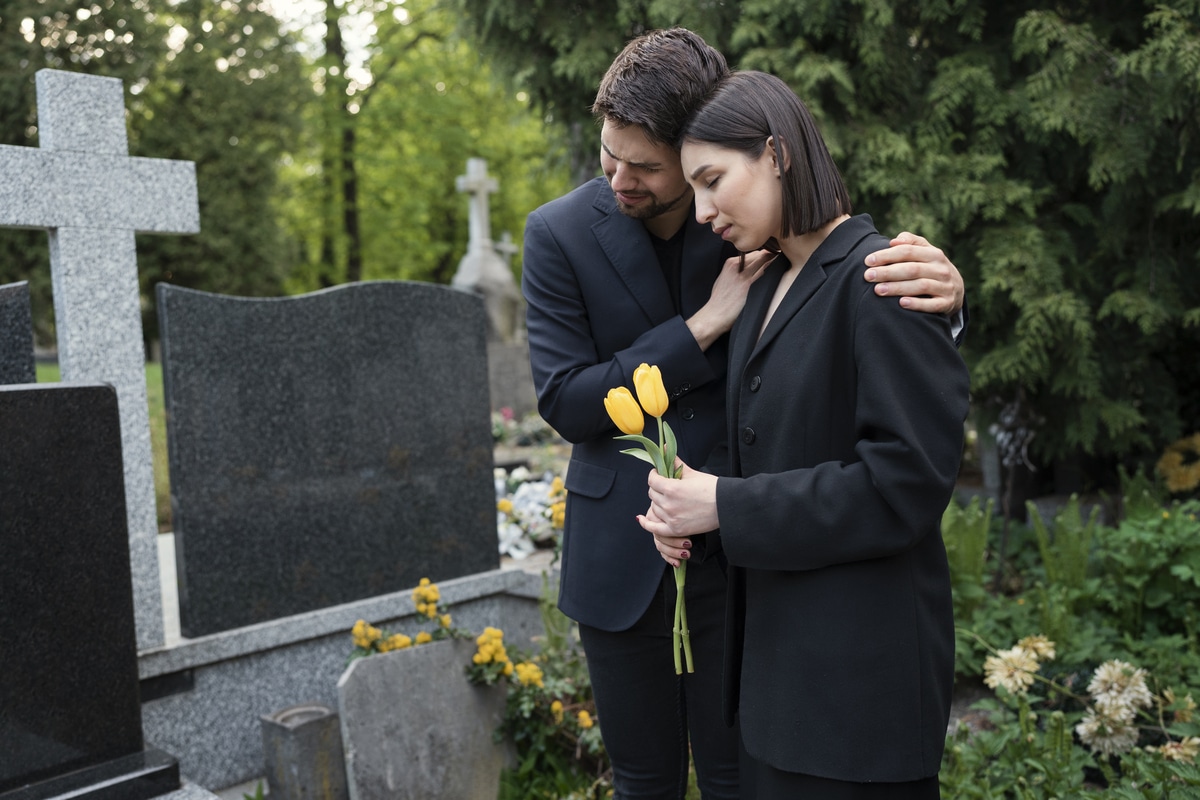Table of Contents:
1. Introduction: The Hidden Dangers of Water Parks
2. Water Parks by the Numbers: Accident Statistics You Should Know
3. Why Water Parks Can Be Dangerous Environments
4. Common Types of Water Park Accidents
5. Who Can Be Held Liable for Water Park Accidents?
6. Legal Considerations: Negligence, Premises Liability, and More
7. Real-Life Examples of Water Park Accidents
8. Consequences of Water Park Accidents: Physical, Emotional, and Financial
9. Preventing Water Park Accidents: What Guests and Parks Can Do
10. Safety Tips for Parents Bringing Children to Water Parks
11. Steps to Take After a Water Park Accident
12. Why Hiring an Injury Lawyer is Crucial
13. Conclusion & Call to Action
1. Introduction: The Hidden Dangers of Water Parks
From thrilling water slides to lazy rivers, water parks are often seen as symbols of family fun. They advertise themselves as safe destinations where kids can splash, parents can relax, and everyone can escape the summer heat. Yet, these environments are far from risk-free.
Every year, thousands of visitors suffer injuries in water park accidents. While some walk away with minor cuts or bruises, others sustain catastrophic injuries, such as spinal cord trauma, traumatic brain injuries, chemical burns, or even drowning deaths. The tragic part? Many of these incidents are preventable.
The most pressing question families ask after such accidents is: Whose responsibility is it? Identifying liability is critical because medical bills, lost wages, and emotional trauma can overwhelm victims without legal relief.
2. Water Parks by the Numbers: Accident Statistics You Should Know
- 4,200+ people are injured on water slides in the U.S. every year, according to the CPSC.
- Drowning remains the #1 cause of unintentional death for children ages 1–4 (CDC).
- The World Waterpark Association estimates that over 375 million guests visit water parks worldwide each year, indicating that thousands of injuries are likely to occur without strict safety measures.
- A Johns Hopkins study revealed that wave pools account for a disproportionate number of injuries due to unpredictable currents and overcrowding.
- Between 2014 and 2018, dozens of lawsuits were filed across the U.S. involving water park injuries ranging from broken bones to wrongful death claims.
These numbers underscore that accidents are not isolated events, but somewhat recurring and widespread.
3. Why Water Parks Can Be Dangerous Environments
Water parks are inherently high-risk for several reasons:
- Water everywhere: Puddles and soaked surfaces increase the likelihood of slips.
- High speeds: Some slides propel riders at speeds of up to 30 mph, increasing the potential for injury.
- Crowding: On peak summer days, wave pools and rivers may have hundreds of people at once.
- Heat exposure: Guests often stand in long lines under direct sunlight, which increases the risk of heatstroke.
- Human error: From inattentive staff to reckless guests, one mistake can have chain-reaction consequences.
4. Common Types of Water Park Accidents
Slip-and-Fall Accidents
- Standard near concessions, restrooms, and pool decks.
- Injuries: sprains, fractured hips, concussions, and spinal injuries.
Water Slide Accidents
- Risks: rafts flipping, collisions between riders, and ejection from slides.
- Injuries: broken bones, head trauma, lacerations.
Wave Pool Accidents
- Risks: drowning in strong waves, inability to surface due to crowding.
- Injuries: oxygen deprivation, brain damage, secondary drowning, panic injuries.
Drowning & Near-Drowning
- Risks: lack of lifeguards, poor supervision.
- Consequences: permanent brain damage, wrongful death.
Chemical Exposure
- Risks: improper chlorine balancing, faulty chemical systems.
- Injuries: burns, rashes, respiratory distress, eye damage.
Heat-Related Illnesses
- Risks: extended sun exposure with limited shade.
- Injuries: heat exhaustion, fainting, dehydration, severe sunburn.
Each accident type has its own liability concerns, and often, multiple parties may share responsibility.
5. Who Can Be Held Liable for Water Park Accidents?
Liability depends on the facts of the case. Key parties include:
• Water Park Owners/Operators: Responsible for maintaining safety, enforcing rules, and hiring staff.
• Ride Manufacturers: Accountable if the slide, raft, or pool machinery is defectively designed or produced.
• Maintenance Contractors: Liable if their failure to repair or inspect properly leads to injury.
• Employees: Negligence by lifeguards, attendants, or managers may contribute to liability.
• Third-Party Vendors: Food or equipment vendors may be responsible if their negligence caused harm.
Sometimes, liability overlaps, for example, a poorly designed ride (manufacturer fault) combined with inadequate supervision (park fault).
6. Legal Considerations: Negligence, Premises Liability, and More
Negligence
- Duty of care existed.
- Duty was breached.
- The breach caused the accident.
- The accident resulted in damage.
Premises Liability
Product Liability
Gross Negligence & Recklessness
Wrongful Death

Families may sue for funeral costs, loss of companionship, and lost income if a loved one dies.
7. Real-Life Examples of Water Park Accidents
- Kansas, 2016: A 10-year-old died on the world’s tallest slide after his raft went airborne. Investigations revealed that the ride had skipped safety protocols.
- Texas, 2021: Dozens of children were hospitalized with chemical burns due to excessive chlorine levels.
- Florida, 2019: A teenager drowned in a wave pool despite lifeguards being present, raising questions about training and attentiveness.
These tragedies underscore the importance of liability; it’s not just about money, but also about accountability and preventing future accidents.
8. Consequences of Accidents: Physical, Emotional, and Financial
Physical
- Broken bones, spinal injuries, traumatic brain injuries.
- Burns and rashes from chemical exposure.
- Permanent paralysis or disability.
Emotional
- PTSD, fear of water, anxiety, depression.
- Emotional trauma for parents who witness their child’s injury.
Financial
- Hospital bills, long-term rehabilitation costs.
- Lost wages and reduced earning capacity.
- Funeral expenses in wrongful death cases.
The ripple effect of one accident can last a lifetime.
9. Preventing Water Park Accidents: What Guests and Parks Can Do
For Parks:
- Regular inspections and ride testing.
- Strict staff training and lifeguard certification.
- Limiting overcrowding in pools and rivers.
- Posting visible rules and restrictions.
For Guests:
- Supervise children at all times.
- Respect ride restrictions.
- Take hydration and shade breaks.
- Wear water shoes for traction.
- Report unsafe conditions immediately.
Prevention saves lives, but it only works if both sides are committed.
10. Safety Tips for Parents Bringing Children to Water Parks
- Never rely solely on lifeguards; always keep your child within sight and within arm’s reach at all times.

- Life jackets: Ensure kids wear Coast Guard-approved vests, not cheap inflatable devices.
- Teach water safety: Prepare children before the visit by teaching basic swimming skills.
- Identify a meeting point: If separated, children should know where to go.
- Monitor fatigue: Kids tire easily, making them more vulnerable to drowning or falling.
11. Steps to Take After a Water Park Accident
1. Get immediate medical attention.
2. Report the incident and obtain a copy of the report.
3. Collect witness names, photos, and videos.
4. Save all medical and financial records.
5. Avoid speaking with insurance adjusters without the presence of legal counsel.
6. Contact a personal injury lawyer quickly to preserve evidence.
12. Why Hiring an Injury Lawyer is Crucial
After a devastating incident like a water park accident, many families assume the process of recovering compensation will be straightforward. After all, if the park was negligent, shouldn’t they “do the right thing” and pay for the harm caused? Unfortunately, that is rarely the case.
Water park owners and their insurers often have one primary goal: to protect their profits and minimize payouts. These companies employ aggressive legal teams, seasoned adjusters, and strategic defense tactics to downplay or deny legitimate claims. Without the help of a strong personal injury lawyer, victims risk walking away with only a fraction of what they deserve or worse, with nothing at all.
How Insurance Companies Undermine Victims
Insurance carriers for amusement and water parks are skilled at protecting their bottom line. Some common tactics include:
- Blaming the victim: Arguing that you or your child was “not following the rules” or “ignored posted warnings.”
- Downplaying injuries: Suggesting that your pain is exaggerated or that your injuries stem from pre-existing conditions.
- Rushing lowball settlements: Offering quick cash that might cover initial hospital visits but ignores long-term rehab, lost income, or emotional trauma.
- Delaying claims: Hoping victims will give up or accept less so they can move on.
- Misusing waivers: Pointing to liability waivers signed at admission, even though these usually cannot shield parks from negligence or gross misconduct.
A skilled injury attorney is well-versed in these strategies and can effectively counter them with evidence, expert testimony, and compelling legal arguments.
The Legal Complexities of Water Park Accidents
Unlike a simple slip-and-fall case, water park accidents often involve multiple layers of liability. For example:
- The park may be liable for failing to train its lifeguards properly.
- The ride manufacturer could be liable for a defective slide design.
- A maintenance contractor might share blame for failing to inspect equipment.
- A third-party vendor may have provided faulty life vests or chemicals.
Identifying and pursuing each responsible party requires legal expertise and investigative resources. A lawyer ensures no avenue for recovery is overlooked.
Why Evidence Matters and How Lawyers Gather It
The difference between a strong case and a weak one often hinges on the quality and quantity of evidence. Parks are quick to clean up or repair hazards after an accident, which means crucial proof can vanish. An experienced attorney will act fast to preserve and collect key evidence, such as:
- Surveillance footage from cameras around the park.
- Maintenance logs and inspection reports.
- Witness statements from other guests and employees.
- Medical records documenting injuries.
- Expert evaluations from engineers, lifeguards, or medical specialists.
Without legal intervention, victims rarely have the power to secure this evidence before it is destroyed or disappears.
Experts Who Strengthen Your Case
Attorneys don’t work alone; they rely on experts who provide credibility in court. These experts may include:
- Engineers who analyze whether slides or rides were defectively designed.
- Aquatic safety experts who evaluate lifeguard performance.
- Medical professionals who connect the accident to long-term injuries or disabilities.
- Economists who calculate the lifetime financial impact of lost wages and medical care.
These expert witnesses often sway juries and push insurers to settle fairly.
Settlement vs. Trial: What Victims Should Expect
Most water park accident claims settle out of court, but settlements don’t just happen; they are fought for. Lawyers negotiate aggressively, often presenting evidence in a manner that compels insurers to settle rather than risk a costly trial.
However, if the park or insurer refuses to offer a fair amount, a strong injury lawyer will be fully prepared to take the case to trial. This leverage alone can encourage defendants to make better settlement offers.
Leveling the Playing Field
Ultimately, hiring an injury lawyer levels the playing field. Parks and insurers have vast resources, but a skilled attorney ensures victims are not bullied into silence or shortchanged. Instead, victims gain:
- A dedicated advocate fighting solely for their best interests.
- Access to resources and experts that match the defense’s power.
- Peace of mind, knowing the legal process is being handled while they focus on healing.
13. Conclusion & Call to Action
Water park accidents are not rare, and they’re rarely “just accidents.” More often, they stem from negligence, untrained lifeguards, poorly maintained rides, defective equipment, or ignored hazards. For victims, the aftermath can mean years of medical care, financial hardship, and emotional trauma.
At Roxell Richards Injury Law Firm, we believe families should never face these battles alone. Our team has the experience, resources, and dedication to hold negligent water parks accountable for their actions. We don’t back down against big corporations or insurance companies; we fight to win justice for our clients.
Frequently Asked Questions
What causes most water park accidents?
Negligence is the leading cause. Examples include lifeguards failing to monitor wave pools, parks skipping inspections, or ignoring puddles on walkways.
Can I sue a water park if I signed a waiver?
Yes. Waivers generally don’t protect against gross negligence. For instance, if a park knowingly operated a dangerous slide, a waiver won’t excuse them.
Who is liable if my child is injured at a water park?
The park is often liable, but manufacturers or contractors may also share blame. For example, if a defective raft caused injury, the manufacturer could be sued.
What damages can I recover after a water park accident?
Compensation may include medical bills, lost wages, therapy costs, emotional distress, and wrongful death damages.
How long do I have to file a lawsuit for a water park accident?
Most states offer two years, but deadlines vary. Some states extend timelines for minors.
Do water parks carry insurance for accidents?
Yes. Most carriers offer liability insurance, but insurers often work hard to minimize payouts.
How do lawyers prove negligence in water park accidents?
Through surveillance footage, maintenance logs, staff training records, chemical testing reports, and eyewitness accounts.

